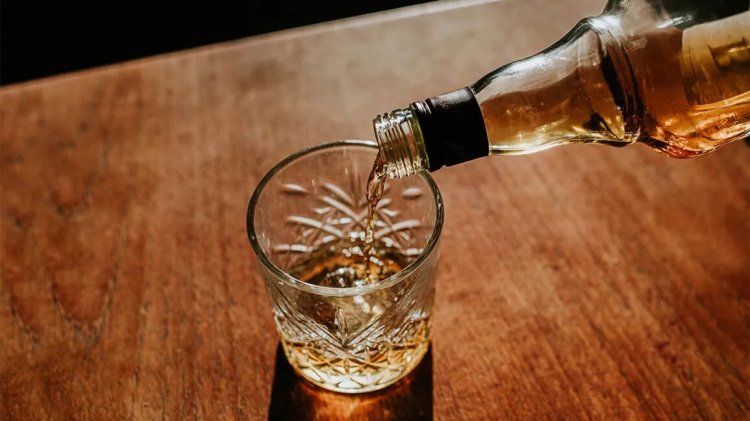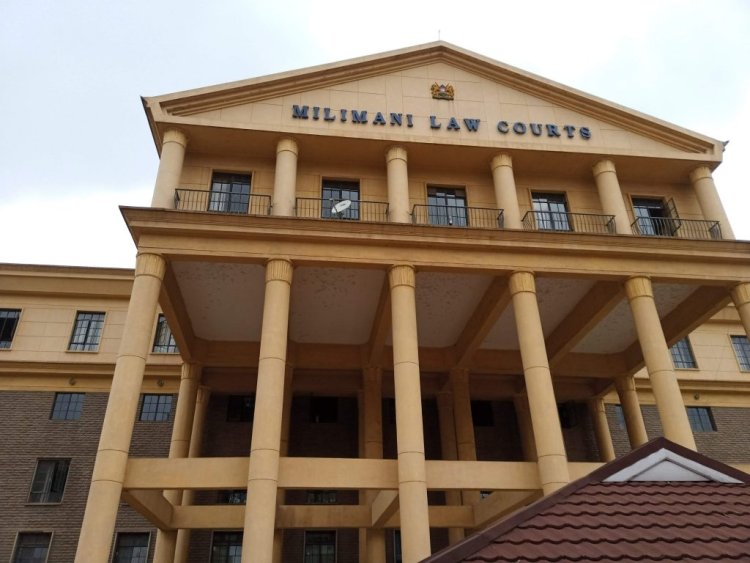Story Of 4-Month Old Who Is Kenya's Youngest Alcohol Addict
The mother, pressed to clarify her shocking actions, argued that she felt she had no choice other than administering alcohol to the child at 6.00 pm to put her to sleep as her mother went out on work duties.

Milimani Law Courts Principal Magistrate Jackie Kibosia on Tuesday, August 22 stunned religious leaders after narrating a case of a four-month-old considered the country's youngest alcohol addict.
The magistrate was speaking during the inaugural training of religious leaders in Kenya to fight the scourge of HIV/Aids, alcohol, and drug abuse at Bomas of Kenya where he delivered the heartbreaking account of the child's struggles with alcohol.
According to Kibosia, the child was fed alcohol by her mother in a bid to soothe her to stop crying and drank it on several occasions to the point of developing a dependence on the drink, in what was a case of parental negligence.
The mother, pressed to clarify her shocking actions, argued that she felt she had no choice other than administering alcohol to the child at 6.00 pm to put her to sleep as her mother went out on work duties.

Photo of a commercial sex worker. /MAMAMIA
“The baby could not stay sober. When the baby was rescued, the baby was already addicted,” said Kibosia.
The judge added that the mother worked as a commercial sex worker. The baby meanwhile was rescued from the mother after the case was brought before Magistrate Kibosia.
The magistrate challenged the religious leaders to stress more on prevention of alcohol rather than rushing to respond whenever the crisis hits families and communities.
Kibosia further asked the religious leaders to become members of the Court Users Committee (CUC) to give solutions and collaborate with the country’s justice system.
Deputy President Rigathi Gachagua’s spouse Pastor Dorcas Rigathi who was in attendance at the training event compelled mothers of drug barons to urge their children to stop the vice known to break families.
“I am speaking to every mother; every drug baron is the son of somebody. If we can speak to the big boys (drug barons), then they can stop killing our young boys. We do not want to bury our children,” said Pastor Dorcas.
The event bought together one thousand religious leaders across faiths who were trained by officers and experts from NSDCC, NACADA, NASCOP, judiciary, police service, and the Kenya Prison Service.
Effects of alcohol on child development
Alcohol is generally a depressant that affects the brain by causing the brain to slow down. According to the Government of Western Australia's Department of Health, this can result in slurred speech, confusion, poor vision, poor muscle control and judgement, slower reactions, lack of coordination and sleep disruption.
The earlier a person starts drinking alcohol at harmful levels the greater the risk of changing the development of the brain. This can lead to problems with memory and learning and increases the risk of having alcohol-related problems later in life.
According to the National Health and Medical Research Council (NHMRC), children under 15 are at greatest risk of harm from drinking and for this age group, not drinking alcohol is especially important. For young people 15 to 17, the safest option is to delay the initiation of drinking alcohol for as long as possible.
Alcohol can affect your child’s brain which continues to develop until their early 20s. It can also negatively impact your child’s problem-solving skills and performance at school as well as potentially affecting their body, mood and mental health.
There are several parts of the brain affected by alcohol during the teenage years. However, there are two areas that are most affected because of the momentous changes they are undergoing at this time.
"The hippocampus which is responsible for memory and learning. Studies of adolescents show that heavy and extended alcohol use is associated with a 10 per cent reduction in the size of the hippocampus. It also shows that the function of the hippocampus is uniquely sensitive to alcohol at this time and that alcohol may be poisonous to the nerve cells of the hippocampus causing them to be damaged or destroyed.
"The prefrontal lobe which is important for planning, judgement, decision-making, impulse control and language is the area of the brain that changes the most during the teenage years. Research with heavy drinking adolescents shows that these young people have smaller prefrontal lobes than young people of the same age who do not drink," outlines NHMRC based in Australia.


 admin
admin 




